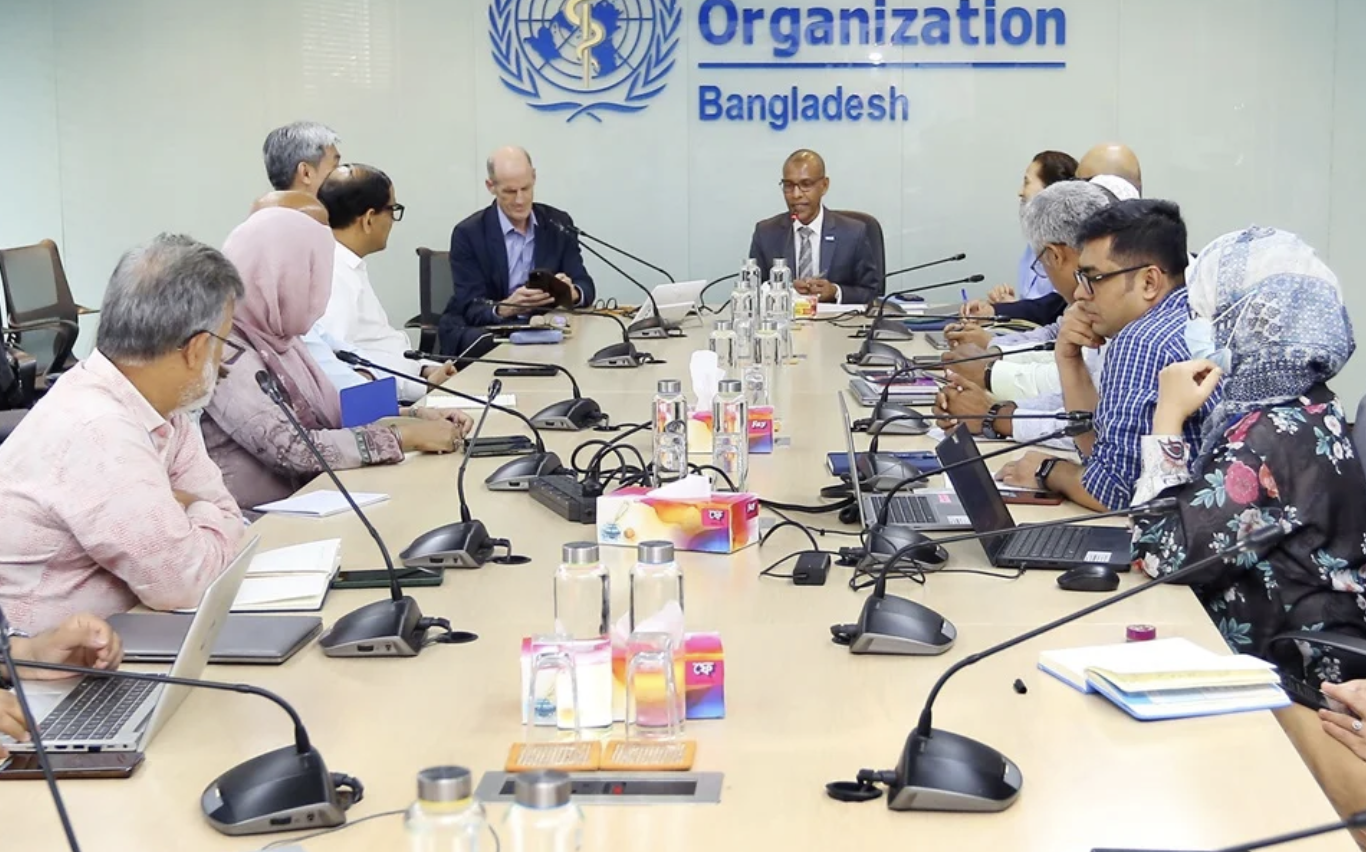The second “Shastha Chorcha” by WHO Bangladesh gathered global and local health leaders to address challenges in achieving Universal Health Coverage. Emphasis was placed on innovation, leadership, community engagement, and collaboration for sustainable health reforms.
The second session of “Shastha Chorcha,” an initiative spearheaded by WHO Bangladesh, convened on 25 June 2025 at the WHO Bangladesh Country Office in Dhaka. The event assembled global health experts, government officials, and representatives from diverse sectors to collaboratively address the challenges and opportunities associated with achieving Universal Health Coverage (UHC) in Bangladesh. The forum was introduced by Dr. Ahmed Jamsheed Mohamed, WHO Representative to Bangladesh, who underscored the significance of breaking down organizational barriers and fostering partnerships both within WHO’s technical units and with external stakeholders. This collaborative approach is deemed essential for advancing UHC and strengthening the country’s overall health system.
A central focus of the session was the current global health context and its bearing on UHC advancement, highlighting the importance of adaptation and innovation in policies and partnerships. A notable feature was a case study on Thailand’s successful UHC journey, offering valuable lessons for Bangladesh, especially in system adaptation and the importance of leadership. Keynote speaker Prof. Tim Evans, a distinguished health policy expert, addressed the evolving landscape of global health financing and identified out-of-pocket payments as a primary obstacle to achieving effective UHC. Prof. Evans urged the WHO to concentrate on its core strengths: normative guidance and convening power. He also called for context-specific, innovative financial solutions tailored to Bangladesh’s unique economic conditions, emphasizing the need for forward-looking strategies to tame system inefficiencies and financial barriers.
Dr. Piya Hanvoravongchai, drawing on Thailand’s UHC experience, emphasized the necessity of strong leadership, community involvement, unbiased technical expertise, and continuous system evolution. He stressed that UHC extends beyond mere financing or health insurance reform; it requires integrated system-level implementation, technical resilience, and steadfast political commitment. The experience from Thailand showcased the pivotal role of civil society and the importance of engaging varied stakeholders for sustainable health reforms.
Challenges facing Bangladesh’s health sector were candidly discussed by Mr. Md. Emdadul Haque Akand, who highlighted underinvestment in public health, a shortage of health professionals, and a disproportionate focus on curative rather than preventive care. He advocated for greater investment in public health, particularly in early diagnosis and prevention, referencing successful school health programs. Further, Prof. Liaqat Ali and Dr. Subraut Paul pinpointed the need for efficient planning, political goodwill, social mobilization, and the urgent issue of high out-of-pocket health expenditures—particularly concerning the cost of medicines, which comprises 64% of health spending.
Interactive discussions on financing models, private sector involvement, and innovation rounded out the event. The consensus was clear: achieving UHC in Bangladesh will require innovative and locally adapted strategies, unwavering political commitment, and active community participation. “Shastha Chorcha” remains a crucial forum for dialogue and collaborative action toward health for all.


